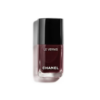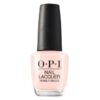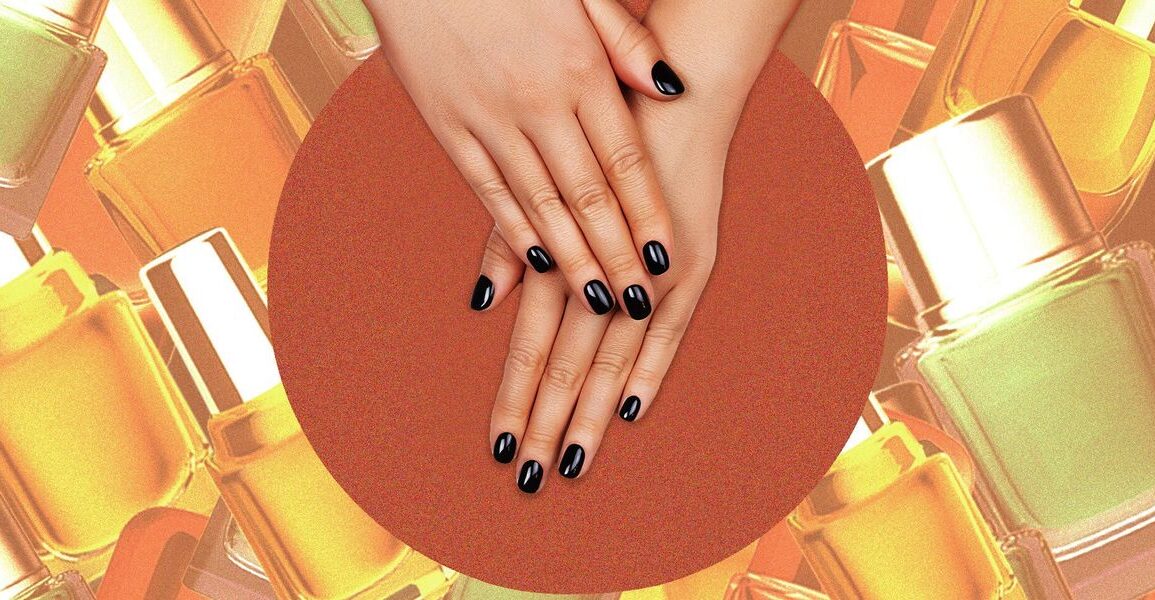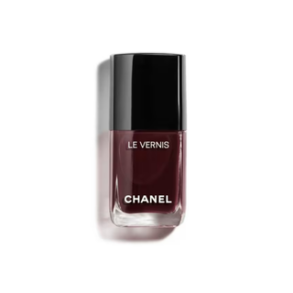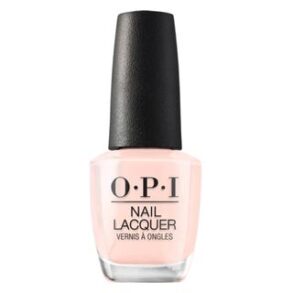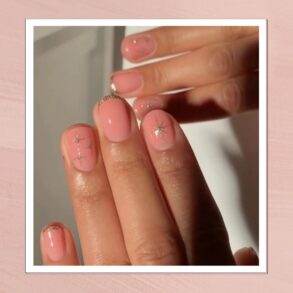
I was seven years old when I got my first acrylic nail set. A short, French manicure I got for a wedding, and I was obsessed. I mean, for a second grader, I was eating! That experience ignited a lifelong love for the beauty routine. No matter the season, setting, or weather, getting my nails done is one of the most instrumental facets of my maintenance habits, and I’d sooner walk around with no eyebrows than miss an appointment with my nail tech.
But through my years of bopping in and out of various nail salons, private studios, and even a few homes, there is one quandary my conversance with the service has yet to solve. What do you say to your nail tech when, after hours of priming, prepping and polishing, you don’t like the finished product? It is one of the most awkward interpersonal experiences, second only to waving back at someone just to realize they were waving at someone behind you—cringe. My uncomfortableness around the whole situation has left me with my fair share of unsavory manicures that I had no choice but to embrace until I was blessedly put out of my misery when they were grown out enough for me to soak off.
Thankfully, because misery truly loves company, I am not alone in my hesitancy to speak up when my nails don’t turn out as expected. On TikTok, there are countless videos of women sharing how daunting the prospect of speaking up during their nail appointment can be. These women would rather pay, and in many cases tip, for nails they absolutely hate than have a potentially uncomfortable conversation about their dissatisfaction.
This phenomenon is even the backdrop to an audio on the app that has raked up over 130,000 videos of women sharing how much they hate their nails and other various beauty services that didn’t turn out quite how they envisioned. But what about expressing our displeasure makes us so uncomfortable, and how can we solve it?
Why is it so hard to speak up at the nail salon?
Confrontation is rarely fun, especially in response to a task that took someone hours to complete. Between the drilling, filing and painting, there is a lot of time and patience required from both parties during a nail appointment. So it doesn’t feel particularly good to critique someone after they spent all of that time working on your nails, says Alexa Acosta, a 22-year-old independent nail tech in San Diego. Acosta has been doing nails for four years and says many customers “recognize nails as art,” and they “don’t want to make the nail tech feel judged by asking them to correct something.”
Additionally, poor previous experiences with speaking up may make a client hesitant to voice their concerns. “A nail technician [in the past] probably told them they can’t do the work, or they’ll say the client is being difficult,” Karen Mireles, a 25-year-old independent nail tech in Houston, Texas, tells Coveteur.
But for the most part, Acosta says nail techs are doing so many sets a day it is unlikely for them to take feedback to heart.
“We don’t take it personally. You’re the one that’s gonna leave here and have these nails for four weeks —I’m not going to be thinking about them once you leave,” Acosta says. Additionally, nails are such a subjective medium that there are bound to be some discrepancies in expectations between clients and their nail techs. “We all have different styles. I like a thin, deep French, and there are so many clients that like a traditional thicker French,” says Mireles, adding that words like thicker and thinner can be helpful descriptors for your nail technician.
At its core, a trip to the nail salon should feel like a luxury, not a nuisance, and that includes acting as a safe space for clients to express their concerns, says Jessica Cao, a Texas-based nail tech at Nails of America & Milano nail spa in Houston. “This is like the place to escape from your life, and we want to be there for you,” says Cao.
What are the best ways to let your nail tech know what you want?
Want to mitigate awkward conversations as the result of hating your nails? Experts say come prepared. Having inspiration pictures at the ready is a great way to align expectations with your nail artist and allows them to make sure what you want falls within their skill range.
“Inspo pictures really make it perfect, because we’re both having the same image in our head of the outcome,” says Acosta, explaining that relying strictly on descriptors can become null and void at a certain point. “I can’t see what’s in your head,” explains Acosta. But inspiration doesn’t always have to come by way of another set of nails, she says. Get creative! “Send me a picture of a shirt or a mural you saw on the street somewhere,” says Acosta, adding that this is where some of the “coolest” nail sets stem from.
If you don’t have a designated nail tech and are going to a salon for the first time, Cao recommends going on the salon’s social media first to see if there are any sets you like, asking the salon which tech did that set and booking with them. If you are unable to find what you are looking for online, she recommends showing a design you like to the receptionist and asking if they can pair you with a nail tech best suited for that design. (This is my personal go-to when trying a new salon.)
“The receptionist will do their best to give you the perfect match,” says Cao, who adds that it is always wise to at least ask any nail tech you are seeing if they can do the design or shape you have in mind before getting started. In especially dire situations, she says she has had clients draw the shape they want since descriptors like “almond” and “square,” can mean different things to different people. And if you don’t hit it off with one tech right away, don’t be too discouraged. “There is a nail technician out there for all of us and each one works differently. Make sure you do your research and look for someone who fits your style,” says Mireles.
When should clients speak up? How should they communicate their opinion without being rude or offensive?
So let’s say we’ve done all the things. From creeping on the salon’s Instagram to using the receptionist as an artistic liaison and — you’re still not pleased with how things are going. How and when should you say something to your nail tech? While it may be tempting to “trust the process” and hope as your nail tech continues, the set will take form, it is almost always better to say something early on, says Cao, who can’t stress enough how important communication is, especially when patronizing a new nail tech.
“Ask them if you can see how it looks on one finger first,” says Cao, explaining that sometimes polishes and powders can look different on the nail than in their respective containers. It is also better to get ahead of any issues before you are too far along in the process.
Additionally, she says if a language barrier comes into play, utilizing a translation app or asking another employee if they can help you describe what you want are great ways to limit any breakdowns in communication. “That’s a major [problem] that I have seen from working at multiple salons, so if your nail tech doesn’t understand you, you can ask someone else like, ‘Hey, do you know anyone that can translate this for me?’ And they’d be OK with that,” she says.
As far as the best way to phrase your displeasure, leading with politeness is the way to go, says Mireles.
“Delivery is everything. I rather hear, ‘Do you think we can file this side a little bit more?’ Rather than ‘You need to file right here.’ Remember, we have feelings; the nicer you say things, the better your nails will look.
Furthermore, admitting that this is all a bit of an awkward situation can take away some of the dreaded tension, and Cao says leaning towards being overly polite can make nail techs more open to your feedback because, at the end of the day, “nail techs would like to impress you,” says Cao. She also adds that clients should at least give their nail techs a chance to make it right. “Be honest but be polite because I’d rather have negative feedback on my work so I can improve and I won’t make the same mistake on the next person,” says Cao.


